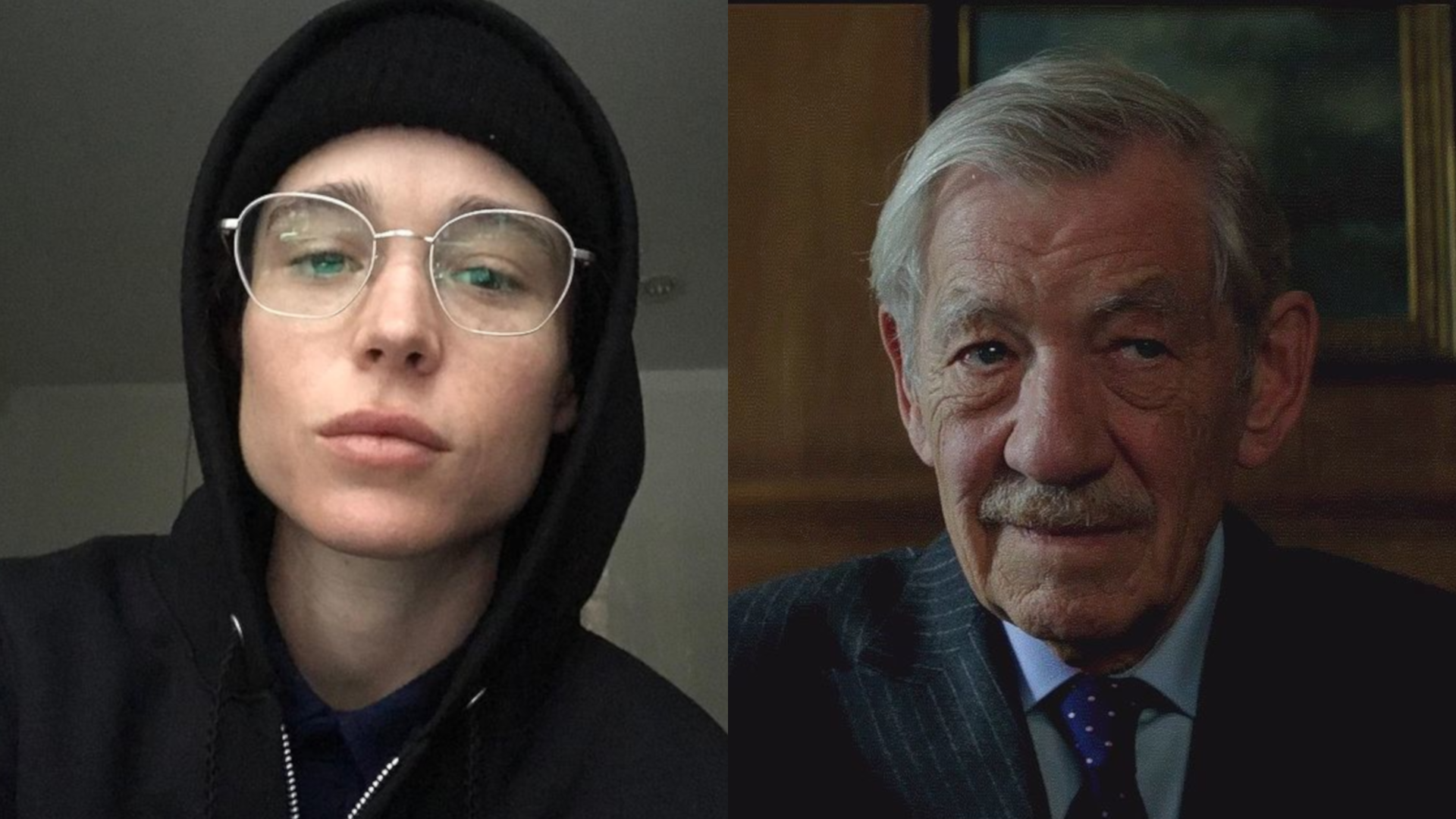
Words of solidarity from a former X-Men co-star?
In a recent interview with Bridgerton star Jonathan Bailey and Attitude Magazine, Ian McKellen talked about the struggles and joys of coming out.
“Everything gets better when you come out because you get self-confidence,” McKellen explained before adding, “So you get better in terms of relationships, friends of all sorts, family, if you’re lucky. And in my case, I think in every case, your acting is bound to change and improve.”
https://www.instagram.com/p/CH8fAz_jtTg/
McKellen then transitioned into sharing his memory of working with recently out transman Elliot Page.
“I remember Elliot Page, in one of the X-Men, sat as close as we are now,” the actor reminisced. “I had to speak when they’d finished, and I couldn’t hear what they were saying. Nobody could hear what they were saying. So, I said, ‘Look, if you can’t speak up, would you mind when you’re finished speaking, just dropping your hand so I know when you’ve finished speaking?'”
“And then they came out [as gay] years later and suddenly you couldn’t stop them talking. You heard everything,” he added. “Now…they’re Elliot. And I’m so happy for Elliot. And so disappointed in myself that I didn’t detect what their difficulty was with communicating.”
https://www.instagram.com/p/CJB7a2mBlgi/
In December of 2020, Elliot Page posted an open letter to the world through their social media accounts. In the letter, Page came out as transgender and shared that his pronouns are he/they.
“I love that I am trans. And I love that I am queer,” Page wrote. “And the more I hold myself close and fully embrace who I am, the more I dream, the more my heart grows and the more I thrive. To all the trans people who deal with harassment, self-loathing, abuse, and the threat of violence every day: I see you, I love you, and I will do everything I can to change this world for the better.”
As for Ian McKellen, the British actor came out in 1998 in response to former Prime Minister Margaret Thatcher’s Section 28 legislation. That legislation ordered that a local government “shall not intentionally promote homosexuality or publish material with the intention of promoting homosexuality” or “promote the teaching in any maintained school of the acceptability of homosexuality as a pretended family relationship.”
That legislation was later repealed in 2000.
Source: Attitude Magazine,
